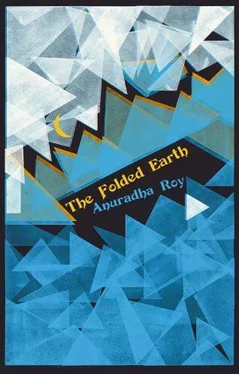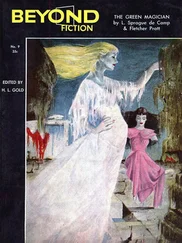When after a long pause he began to speak, it was half to himself. His eyes were still shut and his voice so low that I had to lean forward to catch his words. It was a strange relationship, he said. They began to feel a closeness to each other at the end of Edwina’s time in India, on the brink of her departure, and after that they could hardly bear to be parted for a single moment. Some of their letters were written when they were both in the same room, some were written moments after they had left each other; there was one scribbled across an official banquet’s menu card. In the years to follow, they were rarely alone together, and saw each other only for brief snatches when one of them visited on the way to somewhere else. They were constantly among other people. Yet they wrote to each other every day for several years. The letters came and went by diplomatic bag. Each one was numbered because they were afraid the letters might fall into the wrong hands. And why should they not have feared that eventuality? So much in those letters was dangerous for people in public life. Nehru had called his friendship with Edwina a battle between convention and chemistry in which chemistry had won — more or less. It could not be allowed to win entirely. Public life is relentless, it is unforgiving, it is held together by conventions and the fear of any threat to them. “I should know,” Diwan Sahib said.
His voice took on the tones of someone reciting a poem: “I lose myself in a dreamland, which is very unbecoming in a prime minister. But then I am only incidentally a prime minister.” A man willingly imprisoned by his political destiny, said Diwan Sahib, separated from the woman he loved by duty, distance, necessity, even instinct. If either of them abandoned their own orbits, Nehru had told Edwina, they would both be terribly unhappy. The impossibility of their love was also what sustained it.
Diwan Sahib’s brow remained furrowed in thought. He stared at the fire as if reading from it. I hardly dared say a word, never having seen him so lost to the world around him. He had not once sounded like this talking about Corbett. I could not understand it. The story was startling, of course, but surely so well known and often repeated that it had lost its power to move anyone, especially someone as unsentimental as Diwan Sahib. You are starting to sound like a romance writer too, I would have said, if he had not looked so unlike himself.
“There were letters in which Nehru said he felt Edwina’s presence like a fragrance in the air,” Diwan Sahib murmured on. “She said she felt a sense of peace and happiness with him as she did with no-one else. He sent her things to remind her of the country she had left: birch bark from Kashmir, leaves, stones. Edwina had even given him a ring before leaving India. When she died in her sleep, alone in Borneo, Nehru’s letters were by her bed. She travelled with them everywhere. It was what she read before she slept every night.”
“Why didn’t you write a book on this instead of on Corbett?” I said, when his next pause grew too long.
He blinked as if he had been asleep. His face was etched with pain, but he rearranged it into an imitation of his usual half-seriousness. “Because of Edwina’s dog, entirely because of her dog,” he said. Edwina had a dog called Mizzen. She did not know what to do with it when the time came to leave India. Given England’s quarantine rules, the dog would have had to be isolated for several months before being allowed to re-enter the country. Edwina consulted Nehru and they agreed it was better to put it down than make it suffer quarantine; the dog was too old to survive it, they thought. “That did it for me,” Diwan Sahib said. “All those gardens at his prime-ministerial doorstep and the man didn’t offer to adopt it and let it live out its remaining years in peace? How do you think an old dog like me feels about that ? You won’t put me down, will you, if I become inconvenient?”
“Do you really have any of their letters?” I asked him. “Couldn’t I see them once?” I had had a hunch all along that he had made it up to amuse himself watching people like the woman from East Anglia pay him obeisance.
“Maybe I have them, maybe I don’t,” Diwan Sahib said. “Maybe, maybe not. You’ll find out.” He had shut his eyes again. “I should chop this house into firewood,” he said, his words slurring. “Too big for me, too big — ”
He was drowsy now. He slouched in his big armchair, and in the dim light he looked shrivelled, old and haggard, all bones and loose skin. Above him, the photograph of his dogs in silhouette was scarcely visible, but it made me think of Veer’s stories of Diwan Sahib’s youth: his parties, his horses, the music, his women. He was receding before my eyes, fading out of reach.
I felt the need to do something to stop him disappearing from my life. I pulled a few pages from one of the old bundles on Corbett that had emerged a month ago and said, “Tonight I’m going to type up a few of these and we’ll go over them tomorrow. O.K.? We’ll start again. We’ll find out if we missed anything in the third draft.”
He did not answer. He was lost again in his own thoughts, staring into the sputtering flames.
* * *
That night, I sat up with his papers, and the sound of my typewriter clacked into the night. I typed page after page, overcome by a sense of loss, which, if it had not been overpowering, would have struck me as absurd. How had I missed knowing the man who wrote those words at the time he wrote them? And if his time was short, as he insisted more and more often these days, could I bring myself to look into the abyss of Diwan Sahib’s certain absence?
This is what I typed from Diwan Sahib’s manuscript that night: it was his statement of purpose, his optimistic, tongue-in-cheek plan for a biography — when he had not known the project would take him forty years and still remain incomplete.
Being petrified ever since birth of even the most minor forms of physical injury, it is conceptually difficult for me to grasp something as foolish as bravery. I can only gape in wonder at people who do not require wild horses to drag them onto a cricket pitch, at batsmen who face fast bowlers without being shackled by iron to the wicket. I am similarly bowled over by the idiocy of people who go walking of their own free will in forests where they might be eaten by bears or be clawed by tigers whose talons can sometimes be as sharp as those of certain women I have known. Next to schoolteachers, a tiger seems to me the most terrifying thing in the world, and its immediate extinction (or at least caged enclosure) is a wild inner desire that I have to keep suppressing, given that I am writing a book on Jim Corbett. One look at a tiger’s dental arrangements is sufficient to convince anyone that vegetarianism is not a notion likely to have been entertained even by its remote ancestors. In early youth I was regularly carted off into a forest by my employer, the Nawab of Surajgarh. I was informed by him that the object of these expeditions was to try and glimpse one of these beasts. After I had got over the feeling that either he was joking or lunatic, I transcended the condition of fright in which one merely sobs uncontrollably, and was restrained from the suicide I was attempting by jumping off the swaying pachyderm transporting us in the direction of Blakean fearful symmetry. The Nawab had a profound effect on my early predisposition towards being separated, via a stout iron cage, from all species of four-legged life larger than myself. In part, this accounts for my fascination with Jim Corbett, who seems to have been braver even than the Nawab of Pataudi when he captained our national cricket team. His life was years of shunting and hooting, then hunting and shooting — he was a railwayman before he became a celebrated shikari. By his own account Corbett voluntarily, even assiduously, did the very last thing I would ever do, namely “get in touch” (as he sweetly puts it) with man-eaters. As we know from his riveting tales, the man-eaters were not equally keen to get in touch with him. Once he was on their tails, so to speak, they found it hard to shake him off — which we can’t either, once we get hooked to his tales. Man-eaters of Kumaon looks to me like India’s third greatest storybook, after the Mahabharata and the Ramayana . How did Corbett acquire the art of writing so brilliantly? He read James Fenimore Cooper; Jack London and Mark Twain may also have influenced him. He seems to have read fiction set in frontier territory; novels of exploration and adventure. In my book on Corbett, I want to model myself on Corbett’s tales, telling a sequence of stories that provide a picture of Corbett along with glimpses of his context. I want to give a sense of original, archival fact-finding. There will be entertaining digressions that show how Corbett’s immersion in wildlife was a substitute for the wilderness he suffered in relation to women because of a possessive and devoted sister. The chief source of information on Corbett is a sheaf of notes — thirteen pages dictated by the same sister (whose name was Maggie) to her friend in Kenya, Ruby Beyts, where she and Jim spent their last years. Maggie functioned for India’s greatest naturalist as a mother, sister and wife, much as Dorothy did for Wordsworth. I am starting this book today — the 13th of September, 1967. I plan to finish the book in two years, at most three. But will anyone ever publish it?
Читать дальше












